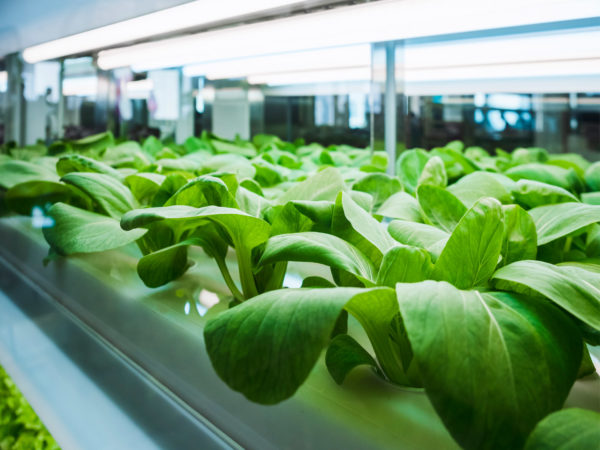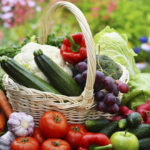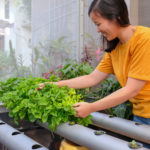Growing Vegetables: Hydroponic Or Organic?
Can fruits and vegetables grown hydroponically be organic? I understand there’s some controversy about this, but I don’t know the issues.
Andrew Weil, M.D. | June 13, 2024

Hydroponic farming is the cultivation of plants in water without soil. An advantage over soil cultivation is that plants grown in water are exposed to fewer risks from pests, weeds, and soil-borne diseases. But can fruits and vegetables grown this way be considered organic? It’s an interesting question. Although the current answer is yes, controversy continues.
Here’s the issue: The Organic Foods Production Act, which sets the standards for certification as organic, also includes provisions for soil management and fertility. Some farmers, along with the nonprofit Center for Food Safety (CFS), have challenged attempts to classify any hydroponically grown plants as organic. They argue that since organic farming by definition benefits the health and regeneration of soil, without those benefits the products cannot be considered organic.
The issue has taken many twists and turns since November 2017, when the National Organic Standards Board voted against a proposal to exclude hydroponic methods from organic farming. The board let stand its position that as long as hydroponic farmers use only organic pesticides – if pesticides are needed – their produce can receive organic certification.
Suits and countersuits went on for several years, with the CFS filing a 2019 petition to block the USDA’s certification of hydroponically grown produce as organic, which the USDA denied. In 2021 the CFS filed a lawsuit to stop the USDA from issuing these certifications, but they lost that suit. In 2023, however, the USDA did issue new rules intended to strengthen its oversight of organic products throughout the supply chain. As of now, fruit and vegetables grown using hydroponic methods may be labeled organic as long as they meet the USDA requirements and are certified.
Organic farmers who grow their produce in soil argue that their vegetables have better flavor and superior nutritional content than those that are hydroponically grown. Whether or not organic produce in general is actually more nutritious than conventionally grown food has never been scientifically settled. But better nutrition isn’t necessarily the primary reason to choose organic produce – the point is to avoid the pesticides and herbicides used in conventional farming and to minimize their potentially adverse effects on health and the planet.
While hydroponic growers often say they breed their tomatoes for flavor, I’ve found that while the fruit often looks attractive, the flavor doesn’t compare to the best soil-grown organic or homegrown tomatoes. Nothing beats the burst of summer flavor that comes with tomatoes sun-ripened in your own garden or in the fields of a good, local organic farmer. (Not all organic hydroponic farms are small, local growers – some huge producers, including Driscoll’s and Wholesum Harvest, raise tomatoes, cucumbers, squash, peppers, and berries in giant greenhouses and distribute them nationwide.)
I can understand the objections of the CFS and some members of the organic community to calling produce grown without soil organic, but I also think hydroponic growing has a promising future and can be performed without chemical fertilizers and pesticides. Perhaps we need to create and name a new category for its products.
See also: Are Hydroponic Vegetables Healthier?
Andrew Weil, M.D.
Sources
Dan Nosowitz, “Can Hydroponic Farming Be Organic? The Battle Over the Future of Organic Is Getting Heated.” Modern Farmer, May 4, 2017, modernfarmer/2017/05/is-hydro-organic-farming-organic/
Food Dive: Hydroponic Crops Qualify for Organic Certification, Appellate Court Rules
Center for Food Safety: New USDA Rule Boosts Organic Integrity
National AG Law Center: The Fight for Organic Hydroponic Certification Under Fire












